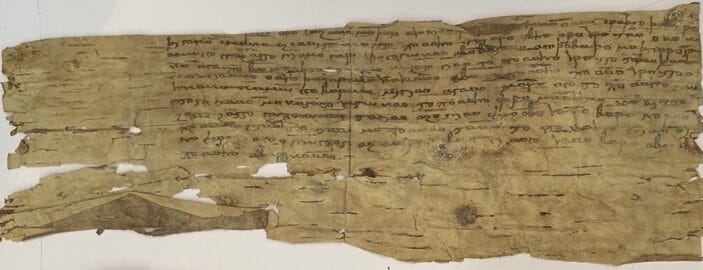Friday 21 March
5:30pm-7:00pm
Nicholas Sims-Williams, Ancient India & Iran Trust; SOAS University of London

New Epigraphic Discoveries from Ancient Bactria
Further details: https://www.festival.cam.ac.uk/events/new-epigraphic-discoveries-ancient-bactria
Booking is required for this talk. To book a place, email info@indiran.org
Bactria is the Greek name for the area around the city of Bactra, modern Balkh in northern Afghanistan. During most of the first millennium CE, the principal language of this region was Bactrian, a language related to modern Persian and Pashto but written in a local adaptation of the Greek alphabet. This language was almost unknown until the discovery over the past 30 years or so of a large body of Bactrian documents written on parchment, together with a few important inscriptions carved on stone. In this talk I will discuss some of the most recent discoveries, concentrating on what they contribute to our understanding of the history of the region. The earliest, an inscription of the Kushan king Vima Taktu discovered in Tajikistan in 2022, dates from the beginning of the 2nd century CE. Although very short, it has made possible the partial decipherment of an accompanying text in a previously undeciphered script and language. The latest, the inscription of Jaghori in southern Afghanistan, is dated in the mid-8th century and records a battle between a local and an Indian prince, possibly a prelude to the replacement of the dynasty of the ‘Turk Shahis’ by that of the ‘Hindu Shahis’. In between these two extremes comes a still unpublished collection of letters written on birchbark, which seems to be the archive of a local ruler who was a vassal of the Sasanian kings of Iran in the late 4th century.
Nicholas Sims-Williams is Emeritus Professor of Iranian and Central Asian Studies, SOAS University of London, and Chair of the Ancient India & Iran Trust.










